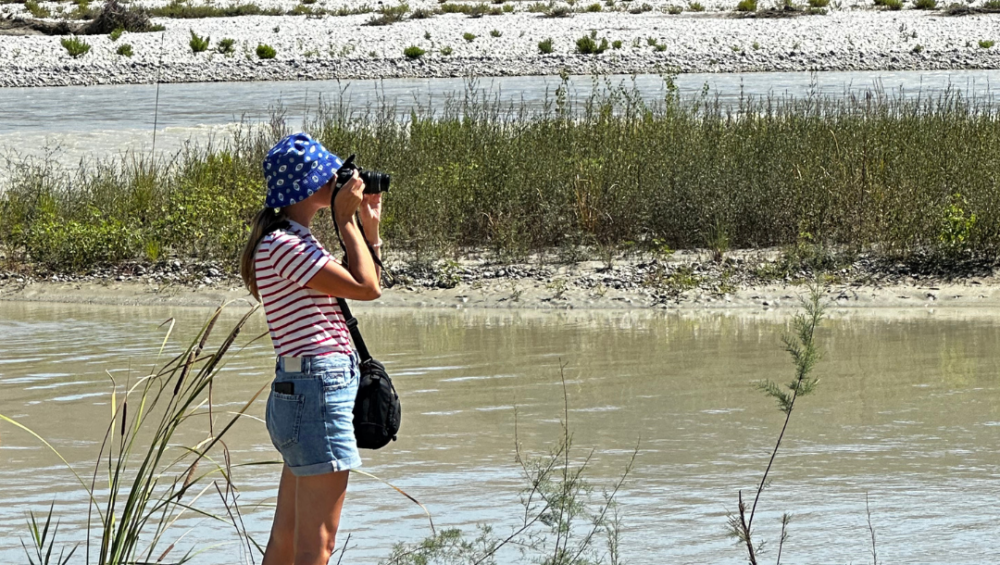From September 1–3, EcoAlbania, with the support of EuroNatur, Riverwatch and Patagonia, organized a press trip along the Vjosa River, Europe’s first Wild River National Park. The aim was to bring national and international journalists face-to-face with the ongoing environmental threats identified in EcoAlbania’s recent Mapping of Threats report.
A River of Global Significance Under Pressure
Since its historic designation as Europe’s first Wild River National Park in March 2023, the Vjosa has become a symbol of successful environmental advocacy and transnational cooperation. The campaign for its protection was embraced by European institutions, media, and the public, turning the Vjosa into a shared European achievement.
Yet, two and a half years later, the river is once again at risk. Oil spills, bitumen mining, gravel extraction, urban waste, untreated sewage, and unsustainable water abstraction are undermining not only the ecological integrity of the river but also the credibility of its protected status.
While the Albanian government has positioned itself internationally as a champion of environmental protection, the situation on the ground tells a more complex story.
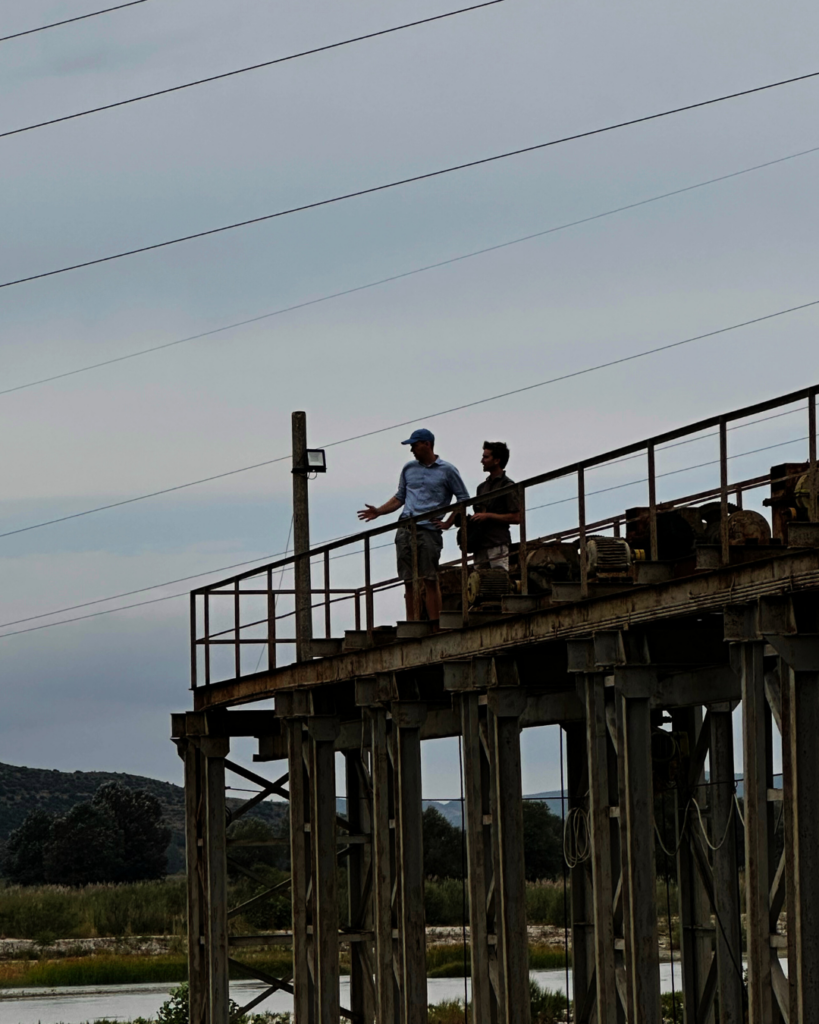
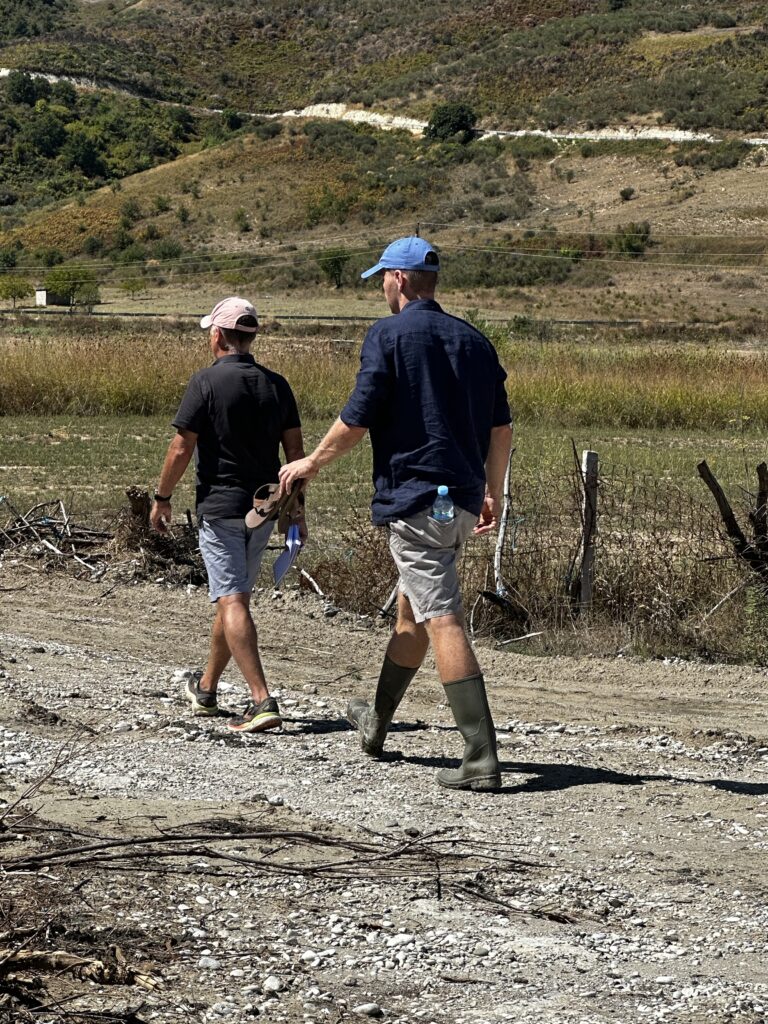
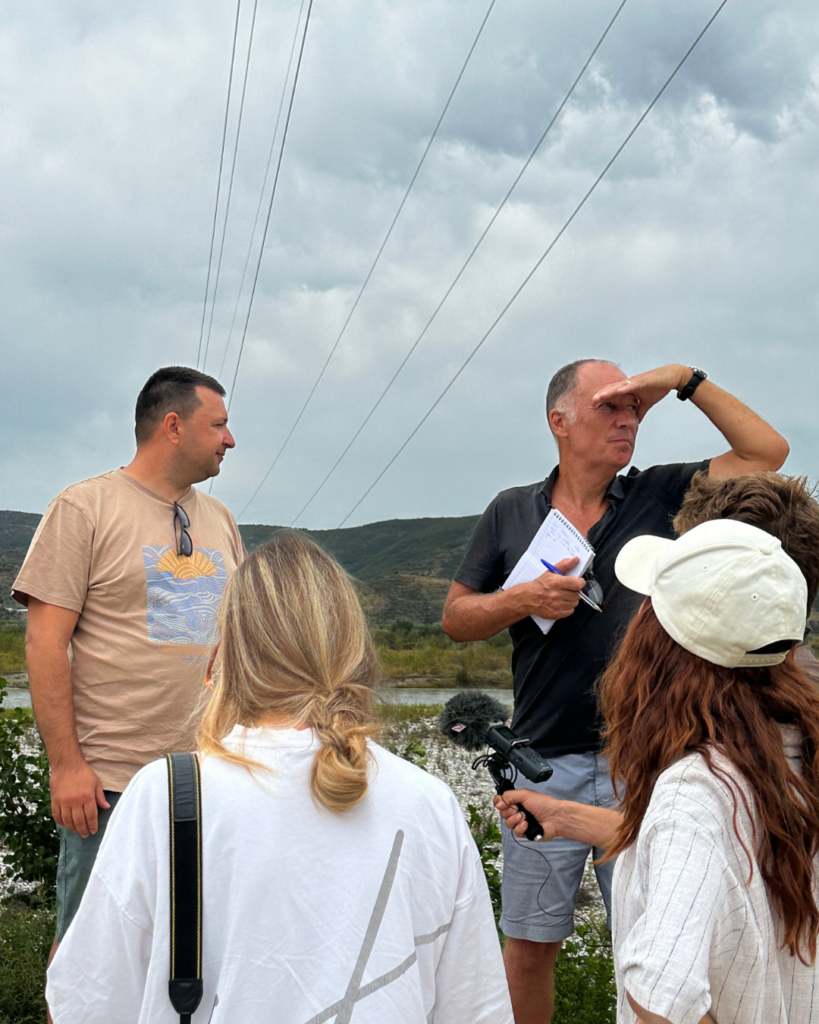

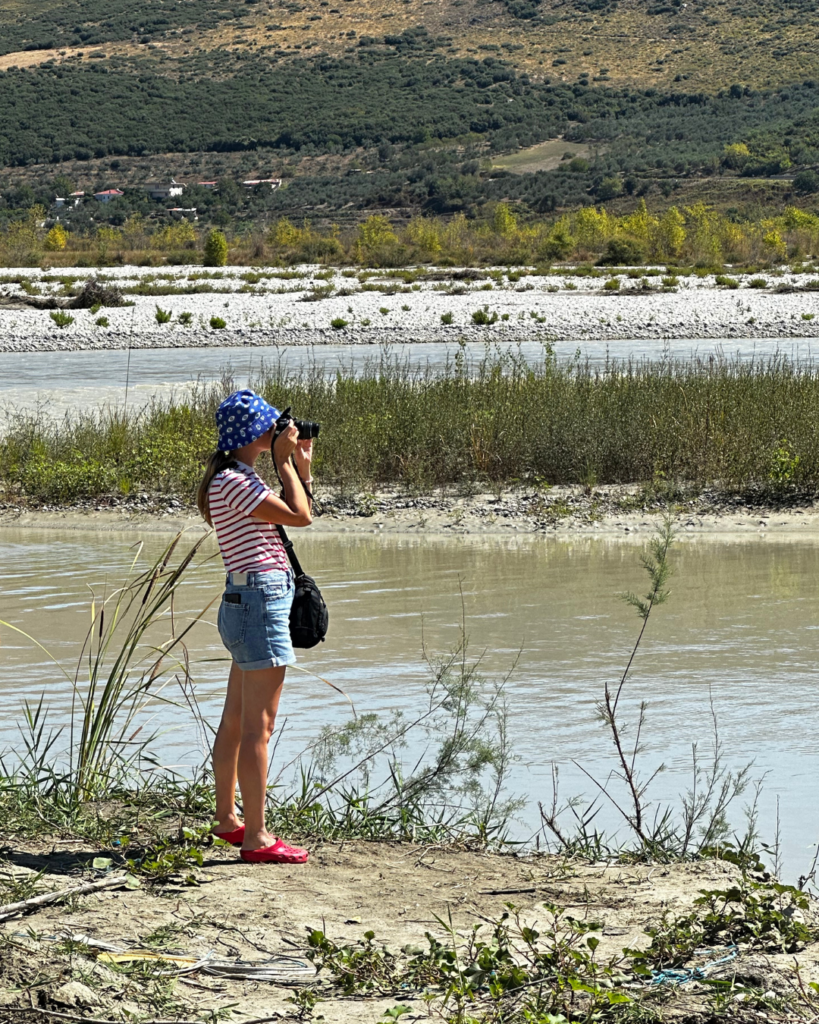
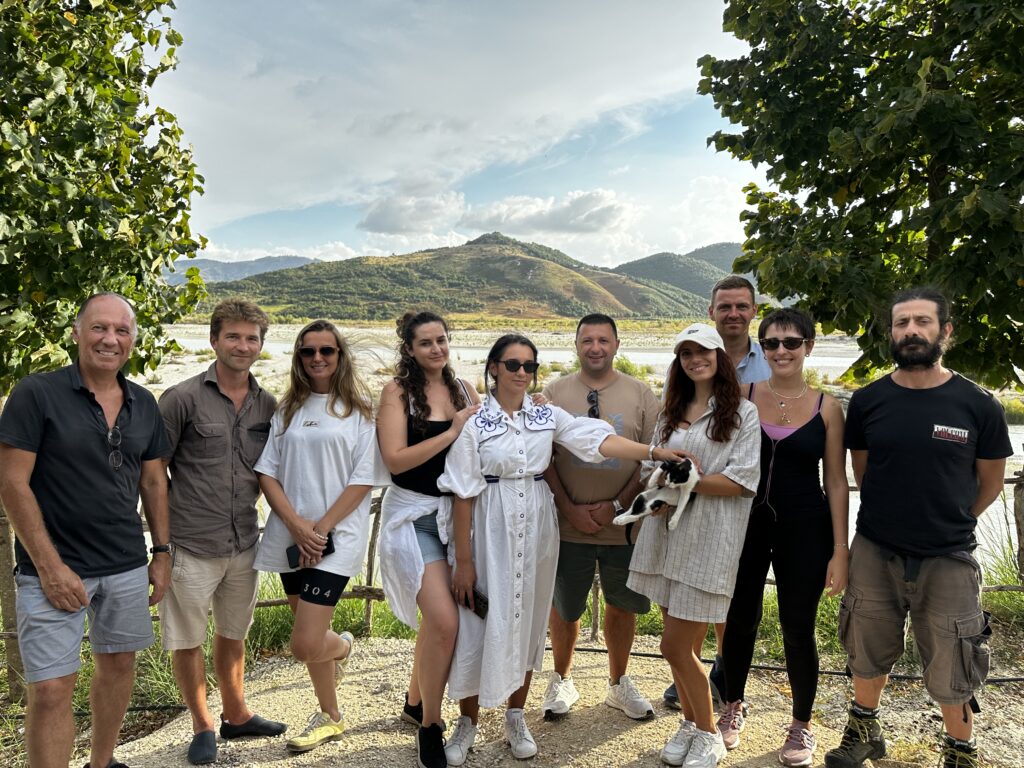
On the Frontlines of the Vjosa’s Challenges
Over the course of three days, journalists followed an intensive itinerary across key sites in the Vjosa basin:
The field trip began in Selenica, where visible oil spills have polluted the riverbanks. In Lepenica, the group examined the legacy of bitumen mining dump sites and their lasting environmental footprint. Later, on the Shushica River, journalists witnessed firsthand the destruction of riparian habitats and the disruption caused by the irrigation channel diverting water away from the river’s natural flow.
In Tepelenë and Bënça, participants documented urban waste and untreated sewage discharged directly into the river, with visible impacts on water quality and biodiversity. The visit concluded with discussions between journalists and experts from EcoAlbania and EuroNatur, followed by the distribution of the Mapping of Threats report.
The Role of the Media
By observing these realities firsthand, journalists play a pivotal role in keeping international attention focused on the Vjosa. Their reporting holds decision-makers accountable and ensures that promises of protection translate into concrete action.
“This park was celebrated in the whole wide world, but the reality in the grounds tells another story. Without an urgent political will, the Vjosa risks being protected only in paper” – Olsi Nika Excetutive Director at EcoAlbania.
Keeping the Vjosa Wild
This press trip highlighted the urgent need for continued monitoring, stronger enforcement of environmental standards, and immediate measures to address the threats identified. Protecting the Vjosa means protecting the credibility of Europe’s conservation commitments.
Through collaboration between local communities, NGOs, journalists, and international partners, EcoAlbania and its allies reaffirm their dedication to ensuring that Europe’s last wild river remains free-flowing, alive, and protected for generations to come.


